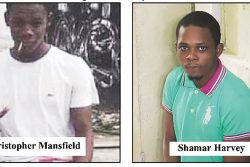Dear Editor,
Please permit me to comment on the latest police catastrophe, which has claimed the life of yet another young officer, traumatized his colleagues and has further devastated the already tattered morale of the Guyana Police Force. While line of duty death is an almost certainty in some professions, over the course of time a common body of knowledge is derived to minimize such fatalities. Some erroneously refer to this compendium as rules of engagement, but I should quickly point out that the term rules of engagement is more a military term.
While the debate rages on as to whether policing is a profession or an occupation, one thing is certain: that the field of policing has so far fulfilled all of the requirements to be considered a fully accredited profession, save and except that of peer review. In order for an occupation to be considered a profession, it must take a particular developmental trajectory; have a common body of literature, a cadre of accomplished trainers and educators; professional code(s) of conduct and a sustaining ethos, to which all members can relate, etc.
Police officers, soldiers, prison officers, pilots, emergency nurses, bodyguards, lifeguards and linesmen who must work between high tension wires, without shutting down power systems, are among emergency workers who are educated, trained and socialized to commit much of their training to muscle memory, so as to comport themselves professionally in times of absolute necessity.
But this professional behaviour cannot be accomplished by osmosis – (the process of gradual or unconscious assimilation of ideas, knowledge, etc) or heuristics.
There are several theories on how learning actually takes place. As a security professional I have always criticized the practice of teaching security and law enforcement personnel, that their training is based on two domains of learning only: the cognitive and the psychomotor, completely ignoring the affective domain, which deals with the intrinsic feelings an individual has towards a particular subject.
Given the fact that the now deceased officer had a sibling who has been sent to prison for his handling of a police pursuit in the infamous Globe Yard, what is known as the halo effect in law enforcement has played a major role in the decision matrix of this case. And that is not the only consideration here; in these modern times officers should have a proper understanding of, among other things, the use of force; the psychology of dangerous assignments; what constitutes professional behaviour; the halo effect on law enforcement; close combat techniques, etc; how to engage persons with mental illness; an understanding of drug dependent behaviour; the application of alternative force options; and an understanding of risk management.
For those who previously felt that the police force was a refuge for uneducated people, think again; police officers are expected to commit, recall and refine vast amounts of very technical information, and make split-second decisions which could have significant and lasting effects for years to come. It is Minister Ramjattan’s duty to ensure that police trainers and educators are first and foremost dedicated professionals.
Yours faithfully,
Clairmont Featherstone







